Ludvig Sunström's Blog, page 12
April 6, 2014
The Minimalist’s Guide For How to Get a Six-Pack
 So you want to get a six-pack? I did too, before I had one. In fact, it was somewhat of an obsession of mine, and I wasted a ton of time doing the wrong things at first.
So you want to get a six-pack? I did too, before I had one. In fact, it was somewhat of an obsession of mine, and I wasted a ton of time doing the wrong things at first.
Most guys want to have a six-pack, but few actually have one. The most common excuse is: “I don’t have the time”, but that’s bullshit. Let me tell you why.
If you focus on the few most important things, and stay consistent, you can get a six-pack quite easily, granted that you’re not someone with completely messed up genetics or massively overweight. If that’s the case, it’s going to take a long time, or might not be possible at all. But that’s rare.
Note: Getting a six-pack is very, very simple in theory. It’s just that the most people overcomplicate it — and fail to realize that they’re overcomplicating it.
Why do they do this!?
–Because they’re not consistent enough and because they don’t do enough self-experimentation to know if something is working for them or not. Since they lack knowledge they are uncertain, and so they go from one method to the next without producing real results.
How many times have you not heard people say: “I tried diet XYZ and it didn’t work!”
These are usually the people who will never get a six-pack, because they’re inconsistent dabblers.
These people are brainwashed by instant gratification and think they aren’t getting anywhere with their current strategies (lifting/diet/fasting), when nothing happens in 1-2 weeks. So they try a new thing, for another 1-2 weeks. They try too many things too quickly. This prevents real gym-confidence from growing, and so they always feel compelled to copy other people — even if it doesn’t make any sense.
They start finding any number of potential reasons why they don’t (or can’t) have a six-pack:
Something is wrong with their hormonal levels…
They must eat trendier health foods and supplements…
They’re not wearing the right gym clothes…
These people completely lose sight of the essentials. Because in all likelihood, the real reason for their lack of results stems from inconsistency in proper dieting and exercise. They aren’t abiding by the major principles behind building muscle and getting ripped.
What You Don’t Need to Do to Get a Six-Pack
Most people go about their workouts in a very haphazard way. They don’t pay enough attention to the essential 80/20 activities, the most important things that will yield the most results per time invested.
Before I tell you about these activities, let me first tell you about some of the things you don’t need to do…
You don’t need to:
Do cardio.
Do isolation exercises.
Eat food that supposedly “spikes metabolism”.
Purchase a bunch of overpriced supplements. (Most supplements have no scientific basis for working — except for bogus research funded by the supplement companies selling the products.)
Read 30 different books on bodybuilding or nutrition before you start lifting.
Note on fitness books: I’ve done my fair share of reading on exercise, nutrition, and health. 90 % of the information in those books is either speculation or unnecessary knowledge. I do find that stuff interesting — but, most of it is a waste of time. The remaining 10 % is useful and applicable information.
There are a few things that work really well and everything else simply isn’t worth focusing on. The problem is that most people are uneducated and have no idea about what works and what doesn’t. As a result of the very inexact sciences of exercise, nutrition, and health, we have a ton of bogus theories, bullshit products, and pseudo-knowledge. And if you’re not a consistent self-experimenter, you’re likely to buy into that bullshit.
What You Need to Do To Get a Six-Pack
Guess what? You probably already have abs. But you need to get rid of the excess fat in the way.
You do need to reduce body fat.
The easiest and most time-efficient way of doing this is by increasing your daily metabolic rate — the amount of energy (calories) that your body automatically uses each day without any effort on your part. And you do this by:
Building muscle
and,
Fasting
By having a lot of muscle and fasting you increase your metabolic rate and can:
Eat more food if you’d like without gaining fat.
Eat the same amount of food as before and lose fat.
Lift well:
Compound exercises are the ones that build the most muscle and burn the most calories. Therefore you should do the following ones:
Deadlifts and stifflegged deadlifts.
Squats, front squats, and lunges.
Clean and jerks (or just cleans if you’d like)
Pullups and chins – preferrably weighted
Dips – preferrably weighted
Variations of benchpress
And when you do these exercises, be sure to always flex your core (stomach & back) as hard as you can.
If you want to be time-efficient you shouldn’t do much more than these few exercises in the gym, but you should do them a lot.
You will do these compound exercises and you will do many sets of them (5-10 ).
You will lift heavy and you will not go above 12 repetitions, preferrably less. (I usually go for 3-8).
These numbers are not set in stone, but they are good guidelines. This is based off of GVT (German Volume Training).
You also need to eat well: Stick to eating a lot of protein. Protein is important for two reasons:
It is required to build muscle.
Protein-rich food takes longer to digest and makes you feel full much longer than, for example, eating carbs do.
The most important foods you will eat include: eggs, fish, meat, broccoli, and spinach. Reduce sugar and sweet things as much as you can because sugar raises your insulin levels, and this has two negative effects for you when it comes to getting a six-pack:
It makes you feel hungry.
It makes it very hard for your body to burn fat.
Also, eat less carbs in general unless it’s from vegetables. Fruits can be healthy, but they are not necessary. Remember, fruit contain a bunch of sugar, though in the form of fructose. If you’re really serious about getting a six-pack you should avoid all sugar.
Sleep well:
Avoid stimulants at night, don’t sit in front of the computer right before bed, sleep in a pitch black room, go to bed and rise in the morning at regular times.
Not 80/20 Activities, but Useful to the Overachiever
Using stimulants. You can drink coffee in the morning.
Taking cold showers. You don’t need that warm shower do you? Warm showers are for weaklings.
Flexing your body as much as you can throughout the day. You can do this in front of the computer.
These three things help you spend more energy (burn more calories). They help, but are not essential.
Doing various ab exercises.
You don’t need to do ab exercises, because if you do all the compound exercises while flexing your core they are more than enough. But if you have extra time to spare, or really like doing them, then why not?
The most important ab exercises in my opinion are:
Different variations of weighted leg raises.
Oblique exercise. This is challenging to do properly and takes some time learning. It’s very easy to cheat doing it – meaning that you’re not using your obliques and core muscles to pull yourself up.
Not Recommended: Waste of Time
Doing cardio. Cardio is a complete waste of time if your goal is to get a six-pack. You can run, ski, swim, or ride a bike for the sake of enjoying it or because you need to practice aerobically, but doing it to build muscle or to lose fat is a big time-waster. You don’t need to warm up with cardio either, you can do 1-3 light sets instead.
Isolation exercises. It’s simply inferior to compound exercises because it builds less muscle and burns less calories. Therefore it’s a waste of time if you’re interested in getting a six-pack as fast as possible.
Stretching. Stretching is a waste of time, an inefficient warm-up, and it doesn’t help you get your six-pack. I haven’t been doing it regularly for years, and I can still touch the ground with my palms on a good day.
Will You Cheat?
I’ve never heard anyone say that they don’t want to have a six-pack. Except people who were lying through their teeth, that is. Everyone wants to have rock-solid abs. And why shouldn’t they? It’s universally attractive.

Are you fat, lazy, and have an ugly haircut? We can fix that. Get YOUR six-pack operation today!
But most people do not want to put in the time lifting heavy weights and do the dieting required to get it. Guess what? I have great news to those people… They can eat their cake, and still get a six-pack. All it takes is a bit of surgery:
Seriously though.
No one can lift that the iron for you. You can’t buy your way to getting a six-pack, unless you want to look as stupid as this guy. A six-pack is earned by being consistent and disciplined, which is why it’s rare and valuable.
While it is possible that you are special — and that you need to do things differently to get a six-pack, it’s not very likely.
And don’t forget the deadlifts: it’s impossible to do compound exercises with heavy weight without developing a strong core. Once you can do that, just shed the excess weight by eating less, fasting, and taking stimulants — without messing up your sleep. Then voila, you’ll have yourself a rock-solid six-pack of abs. And you earned it.
I’m curious. What are some of the crazy rumors that you have heard/read about the things you “must do” to get a six-pack?
The post The Minimalist’s Guide For How to Get a Six-Pack appeared first on Startgainingmomentum.
March 31, 2014
When Should You Read? And How Much?
 If you’ve read SGM for a while you’ll know I place a high importance on reading (books).
If you’ve read SGM for a while you’ll know I place a high importance on reading (books).
Reading is important because for most people it’s their main way of gathering information. And people’s inputs for information invariably affect the thoughts they’ll have. That’s why you shouldn’t read magazines or watch the mainstream media. You should read books.
But, when should you read, and how much?
These are questions I have put much thought into over the past 1.5 years.
However, I have resolved them by using the strategies in this article. I have not changed my approach since I first started doing these things, and I feel confident that they work.
—————————
Arthur Schopenhauer is the one who has contributed the largest share of inspiration to my current take on these questions. His main argument for why you shouldn’t read too much is that it handicaps your capacity for original thinking.
Much of his advice is sound, but bear in mind that times are now different from when he lived ca 1800, especially in regards to how we take in information, and the sheer volume of it that’s out there now.
Enter Arthur:
If a man’s thoughts are to have truth and life in them, they must, after all, be his own fundamental thoughts; for these are the only ones that he can fully and wholly understand. To read another’s thoughts is like taking the leavings of a meal to which we have not been invited, or putting on the clothes which some unknown visitor has laid aside.
– Arthur Schopenhauer
He goes on to say,
Reading is nothing more than a substitute for thought of one’s own. . . A man should read only when his own thoughts stagnate at their source, which will happen often enough even with the best of minds. On the other hand, to take up a book for the purpose of scaring away one’s own original thoughts is sin against the Holy Spirit. It is like running away from Nature to look at a museum of dried plants or gaze at a landscape in copperplate.
Here’s one of the key things that has changed: people today don’t read books for the purpose of “of scaring away one’s own original thoughts” . We have the Internet, porn, video games, candy, or other — much more efficient distractions — for that purpose.
A man can always sit down and read, but not—think. It is with thoughts as with men; they cannot always be summoned at pleasure; we must wait for them to come. Thought about a subject must appear of itself, by a happy and harmonious combination of external stimulus with mental temper and attention; and it is just that which never seems to come to these people.
When he says “these people”, he is referring to people who are well-read and know a ton of concepts, but don’t know anything about their application or what they mean, they only know that someone else has said it. Certain academics are a lot like this.
And finally,
A man must wait for the right moment. Not even the greatest mind is capable of thinking for itself at all times. Hence a great mind does well to spend its leisure in reading, which, as I have said, is a substitute for thought; it brings stuff to the mind by letting another person do the thinking; although that is always done in a manner not our own. Therefore, a man should not read too much, in order that his mind may not become accustomed to the substitute and thereby forget the reality; that it may not form the habit of walking in well-worn paths; nor by following an alien course of thought grow a stranger to its own
My arguments:
Fundamentally, I agree with what Schopenhauer is saying. But it comes down to purpose: sometimes your own thinking will only get you so far. And if you read intelligent people’s thoughts, it’ll save you a lot of time, compared to reinventing the wheel from scratch.
In other words, it’s not black or white. It’s a matter of judgment — after all, why do you read? What is the end goal?

I usually read for specific learning purposes. I also frequently read to write, meaning that I read to find an interesting topic to think about. If I read thought-provoking content in a book, I’ll put the book down (or minimize the Internet tab) and start to write a mini-essay on the topic. Then, once I’ve exhausted my train of thought, I’ll get back to reading.
I’d like to think that Schopenhauer would nod in approval to this.
[Note: The mini-essays accumulate and sometimes become the articles I put up on the site.]
Books as Mental Crutches
So, is Arthur Schopenhauer right? Can reading books be harmful?
To be fair, I think that it’s rare in this day and age. Sure, information overload is extremely common, in fact, it’s the norm.
But from reading books? I don’t think so.
I think the main reason why many people suffer from information overload is because they read with such shallowness and move on to new information too quickly. And that’s a lot easier to do on the Internet than it is from reading a book.
I have previously said that most people don’t find it particularly entertaining to read lengthy books.
It is so.
Since most people aren’t in the habit of doing it, they don’t like the effort required to focus. Instead they want the information to be fed to them effortlessly.
They want it to be skimmable, not very challenging, quick and witty, and after having read it they want to be left with a feeling of superiority relative to the suckers they read about. So they tune into the mainstream media, read at big forums, or hang out at Reddit where they can get a seemingly large benefit from a small investment of energy.
Having said that, I don’t think reading is harmful when you do it the right way, or when you use it to jumpstart your own thinking — which is what Arthur prescribes.
Reading the right way has a lot to do with. . .
How Much Information You Retain
You know you’re reading too much — or too quickly — if you don’t retain much of the information later. Like the boring and practically useless information you were forced to learn in school just to pass an exam in a subject that no one even knew why it was mandatory.
You can fix this by improving your framework for learning things:
Take notes and summarize the key points of things you read online.

Take physical notes with a multicolored pencil to make it faster to go through later by being able to distinguish between different types of information. Plus you feel like a badass when you create your own system.
Talk about the things you have learned ASAP while this information is still fresh in mind. Bring these things up in conversation to get extra repetitions, and memorize it better.
[Note: I do this all the time to strangers and girls when I go out socializing. People like to learn new things, and if you do it the right way you'll come off as smart. Try it out.]
Use a book summary book to keep the essential, most practical, and actionable advice from the books you read.
Have specific questions in mind when you read, this helps your brain look for patterns.
While you’re reading, be sure to write down associations that interesting paragraphs or quotes from the text make you think about. Associations strengthen memory and help you connect dots. Here’s an example:
The people can always be brought to the bidding of the leaders. That is easy. All you have to do is tell them they are being attacked, and denounce the pacifists for lack of patriotism, and exposing the country to greater danger.
–Hermann Goering
Association: This seems familiar. Isn’t this like what happened in the U.S with 9/11?
The key words being: “This is like… XYZ” .
Over time, as you read a lot of books and write down associations, you’ll be able to see patterns that most other people don’t see.
Learn Now or. . . Never?
One of the most important points I made in Breaking out of Homeostasis was:
Learn things and form your view of the world while your potential to do so is still at its peak. Which, according to different studies seems to be somewhere between ages 30-40 years old. After that point in time your prefrontal cortex (PFC) — which is imperative to learning — is no longer as neuroplastic.
That doesn’t mean you stop learning, but your rate of learning isn’t as fast as before. The information you’ve already retained is going to be extra important after that point, because the amount of associations you already have will determine — to a large part — how easily you take on new information.
The typical person doesn’t read books, watches TV a couple of hours each day, where he sees about an hours worth of commercials. Such a person is unlikely to have a rich bank of associations stored in his brain. When he gets old, he will not have an easy time learning things. He is not very adaptable. He is heavily reliant on his current profession and limited store of knowledge, for lack of learning new things.
Good luck teaching that old dog a new trick. Good luck getting him to change his world view, even when he is confronted with compelling evidence.
It’s not gonna happen.
So, you better get it right the first time around, and learn the important things while you still can and feel compelled to.
—–
To be fair, I might be reading too much. It’s hard to say with certainty right now. I will know eventually if I’m reading too much. The results will speak for themselves in time.
Check back up on me in 5-20 years, and I’ll have a satisfying answer.
All in all, does this mean that you should read all day long?
Probably not.
But if you’re anything like most people, you’re not reading enough. In my opinion, you should read (quality books) at least an hour per day.
If you read less than an hour per day. Read more.
If you do read a lot:
–Why do you do it?
–What ways do you use to stimulate your own thinking, and not just mindlessly absorb the information?
–How do you practically apply the information you learn?
Photo Credit: Flickr
The post When Should You Read? And How Much? appeared first on Startgainingmomentum.
March 23, 2014
How to Find People Worthy of Your Time and Get Them to Like You

Do you think it’s hard to find people you’d want to surround yourself with — intelligent people who actually do things?
I know I do did.
And it’s definitely one of the things that you need to get on top of as soon as possible in life. Because it can make all the difference.
The small number of people that you surround yourself with and spend the most of your time with will impact your life in a big way.
If you deliberately find people who are intelligent and driven, befriend them, and start hanging out with them a lot, it will make a huge difference over time. Everyone who knows anything about self-development stresses the importance of this. Every person who lives a life of deliberate design has done this.
The problem is that most people don’t think it matters that much.
Why You Must Find People Who Are Intelligent and Do Things
One of the saddest things I know, is when highly intelligent and ambitious people don’t understand this — that they must set out to find people who are on the same level as them. Because if they don’t, it’ll hold them back worse than walking around with hiking gear.
Think about it.
If you were to walk around with a heavy backpack and hiking gear every day, it would make you slower, but at the same time it would also make you stronger. It follows the principle of resistance training, you pay a temporary price of discomfort to get stronger in the long-term.
Some people actually apply this logic to their choice of friends or associates. They think that they’ll get “stronger” if they — who are smart and ambitious — surround themselves with people who are below their level.
They think that they will become mentally stronger, more independent and less reactive, by surrounding themselves with people who are inferior to them.
But that’s completely wrong!
The “resistance-training-logic” cannot be applied to the company you keep.
You don’t get “stronger” by surrounding yourself with people who are less smart, take less action, and are less ambitious than you are.
It might make you look better and affirm your ego — making you feel like you’re doing really good in comparison to these people. But it won’t help you much over time. Of course you look good, compared to those people… But what if you compared yourself to some of the greatest men in history?
That would put things in better perspective.
Being around people below your level because it makes you look cool in comparison is a symptom of being a short-term thinker who’s more focused on how things are right now compared to how things will be.
When I meet such people, and I see the company they keep, it’s painfully obvious that they’re not going to make it as far as they deserve to, unless they cut away the dead weight friends.
But that can be tough – cutting them out, that is.
It can be tough for a number of reasons.
It’s hard to be icy when it’s a long-term friend you’re dealing with. It’s hard to cut friends off, even if you know they’re not the type of person you should be around to maximize your personal growth in the long-term.
Why?
Because you like them — and emotions precede logic. It does distort your rational abilities. You will be biased. You will find any number of reasons why this friend of yours adds value and ought to be kept in your life. You become blind to the obvious loser-tendencies in your friend.
So, how do you deal with it?
The best solution is to avoid this bias from even occurring in the first place!
You do this by developing high standards for who you spend time with. You become mindful about who you allow into your life.
In this post you’re going to learn a strategy for doing this, consisting of two steps. And it’s highly practicable.
Find people and screen them to see if they’re worth your time.
Befriend them quickly by establishing rapport — AKA, identify their dominant memes and center the conversation around it.
Note: This strategy works much faster and better in real life than it does online.
Step 1: How to Find People and Screen Them
Socrates supposedly said,
Strong minds discuss ideas, average minds discuss events, weak minds discuss people.
As a general principle I’ve found this to be highly accurate. Strong minds do discuss ideas most of the time.
And the weak minds? Who cares.
Here’s what you do:
Say this quote out loud three times for the sake of repetition. Do it now before reading on.
You then write this quote on your whiteboard, or somewhere else where it’s highly visible. Then you look at it every day as you go about your day. That way it should stay fresh in your RAS (reticular activating system) and automatically be brought up to your attention.
You will then think about this in conversation with other people. You will quickly analyze any conversation on these three levels:
Strong minds = ideas: People talking about an idea or the execution of a future goal. They talk about something non-existent as if it were real, without hesitation as to whether this is going to happen or not. They talk about what will be.
Average minds = events: People talking about The Olympics, soccer players, some concert, or their last night out. They talk about what has been.
Weak minds = people: People talking about someone else’s actions, perhaps about a celebrity, or gossiping about acquaintances. They talk about other people because they don’t believe they can do anything themselves. Typical small-minded spectator-mentality.
The first group is important, and exceedingly rare. The other two groups aren’t worthy of your time.
The strong minds are the doers and critical thinkers of the world — the people who set the pace that everyone else follows. The average minds and the weak minds are the many people who observe and react to the strong minds.
If you observe this for a while it soon becomes an automatic habit that helps you screen people. It’ll save you a ton of time by improving your ability to quickly gauge the character of other people.
Step 2: Get Them to Like You
The easy explanation for how you get another person to like you is that you need to find a commonality, center the conversation around it, and build rapport.
And how do you do that?
By tuning into that person’s reality and finding out what his or her dominant memes (ideas & beliefs) are.
This is pretty advanced stuff, but when you understand how it works you will become astonished by seeing how easy it is to get just about anyone to like you.

Do you mean that I should stroke the ego of the other person?
Kind of, but this goes beyond that. The meme-perspective is deeper:
–You see, when you’re interacting with another person, it’s not always a genuine interaction you’re having. By “genuine interaction” I mean a discussion between two peers who don’t seek approval from each other, and whose common aim is the elevation of the mind. That is, they’re both prioritizing learning from one another over maintaining appearances or trying to impress each other. And both people are invested into the conversation.
Why are “genuine interactions” rare?
Because it’s a fact that most people nowadays aren’t very mentally present in conversation with others. This is because:
They’re busy playing a part (they don’t really know who they are): A large bulk of people’s limited attention span is spent just to maintain their social persona by planning what to say or do next. This makes it hard for them to really listen to another person.
They have a short attention span and aren’t very focused, making them easily distracted: For example, if a hot guy/girl walks by they’ll unconsciously look at that person and lose focus.
These two things prevent most people from investing into the interaction. You could say it’s a defense mechanism to keep the brain from spending energy and hinder change.
With that said, you can look at your interactions with other people — in particular with strangers — in a new way. Think of it as interacting with a brain possessing a body. There are two things you look for:
A brain seeking to test out its ideas in search of improvement. This is generally true of a “strong” mind. This is what you’re looking for. These people want to change and improve.
A brain in homeostasis defending its existing ideas and seeking information confirming what they already know, or validation to stay the same. This is generally true of “average” and “weak” minds. This is what you want to avoid. These people don’t want to change.
I’m not saying that you should now stop thinking of other people as. . . people. But it certainly does help for the purpose of screening them to get a quick glimpse of what type of people they are, and if you’d like to get to know them.
Using the Meme-Perspective to Get People to Like You
Regardless of whichever of the 2 cases above you’re dealing with:
–It’s crucial that you first identify the dominant memes underlying each topic brought up by the other person.
With a little practice you can do it quickly.
You can then tune into that, and feed into the other person’s reality by:
Listening to them in a non-judgmental manner.
Agreeing to what they’re saying in a convincing manner and thereby validating them.
Speak about the things they’re interested in.
This will get the person to continue talking. And the more they talk, the more they invest into the interaction and the relationship. This is what you want!
You could also disagree with them, but do so at your own peril.
Strong minds can take it. Average and weak minds usually cannot, they will dislike you and perceive you as a threat.
Why?
Because they’re very uncertain about who they are — their identities are fragile: their sense of reality is founded on shaky grounds. So, when they get feedback that doesn’t verify what they already know, it makes them confused and highly uncomfortable. They’ll want to avoid you so that they can stay safe and comfortable.
Final Words
You’re not going to be successful at using this strategy unless you become a great listener and come across as an honest person.
Also, it’s usually easier to find and identify the average minds and the weak minds.
Guess why?
It’s because you’ve already gone through the paradigms that they live in, so you can more easily understand how they think and act. You’re already familiar with those things: your brain’s pattern recognition easily spots the pattern.
However, the stronger minds may be further along than you are, or in a completely different set of paradigms, making it a tougher for you to find people like this and screen them.
Summary:
1) Screen people to see if they’re worth your time. This can be done quickly just by analyzing the topic of discussion:
Strong minds discuss ideas, average minds discuss events, weak minds discuss people.
– Socrates
Put that quote up somewhere and look at it frequently. Copy it into your commonplace. Practice it.
2) Befriend people by identifying their memes (ideas & beliefs) and feed into them. Or put in plain English, find a commonality and build rapport.
It’s very hard to write a piece like this one without coming off as a sneaky social manipulator. But the fact is that we all have social strategies. It’s just a matter of if we tell others about them or not.
Speaking of social strategies:
What do you think about this? Do you know of any smart ways to meet intelligent and driven people?
Photo credits: Max S
The post How to Find People Worthy of Your Time and Get Them to Like You appeared first on Startgainingmomentum.
March 16, 2014
How to Become Skilled at Networking: Learn from a Pro
 A few weeks ago I sat among hundreds of other people listening to a speech given by Pingis Hadenius. Pingis is a former investment banker, Editor in chief and Founder of Elle Puls, and now an author and successful serial entrepreneur.
A few weeks ago I sat among hundreds of other people listening to a speech given by Pingis Hadenius. Pingis is a former investment banker, Editor in chief and Founder of Elle Puls, and now an author and successful serial entrepreneur.
I wanted to pick her brain so I used my strategy for getting on the radar of successful people to get her attention. I asked her questions during the speech to show my interest. I then approached her after the speech to speak with her in person.
But I couldn’t learn as much as I’d wanted, because there were lot of other people competing for her attention. It wasn’t exactly a private conversation.
So, I waited my turn, got her card, said I’d get back to her, and excused myself.
I then went home and immediately followed up on the interaction by using one of the special tricks that she mentioned in passing during our brief conversation.
The trick worked. You can see in the featured image above.
Translated into English, it says:
Hey Pingis! Here’s a handwritten note, in a digital kind of way. I heard from a smart girl that this is a good way to follow up!
Nice to meet you.
/ Ludvig
In fact, it worked so well that Pingis has now decided to help you – dear reader of SGM – by sharing some of her most powerful tricks and mindsets for networking.
Enter Pingis…
 Why do I think building relationships and knowing how to network with people is important?
Why do I think building relationships and knowing how to network with people is important?
Because one of the surest ways to success is to manage people and build great relationships.
Because you can go to the best college, you can have top grades, you can work for a company that sells amazing products — or you can actively focus on building relationships that will pave the way toward your ambitions in life.
We now live in a service-based information society. This makes genuine interactions with real people combined with the skill of creating relationships, a powerful business tool.
For example: to build a successful business you need to attract and train people who are passionate about what they do. You do that by creating a “Winner Culture” in the company. Everyone has to share the same beliefs.
The people you surround yourself with will affect you more than anything else — even more than having a great product to sell.
Even if you don’t own a business, you need to start thinking like a business person. You need to think about your closest relationships as if it were a business.
Surrounding yourself with the right people is like having a springboard that pushes you in the right direction. It makes everything so much easier, not to mention how much more fun you’ll have!
To become skilled at networking, start by asking yourself:
What do I want to accomplish?
Who do I need? Who must I get to know to accomplish my goal?
How do I contact them? How do I build a relationship with them?
[Note from Ludvig:] Take a moment to think that through.
How to Contact People
A few years ago I wanted to contact Michael Wolf, CEO of Swedbank. So, I sent him a letter via snail mail. Even though it was the middle of the summer, he sent me an email on the very same day that my letter arrived. By doing that I created a personal relationship within the bank, and I still benefit from that connection today.
We live in a society that overflows with information. This means that you need to do things differently to stand out and grab people’s attention.
You can send 100 emails to 100 people. Or you can send one real letter to the most important person that you need to contact.
Which of the two alternatives do you think is better?
If you’re confident in your ability of making a positive impression, you definitely want to meet people in real life. There are certain things you simply can’t communicate over social media, email, or even over the phone.
Meeting someone in real life makes a much stronger impact than meeting someone online — even if you have a really cool website. Consider the difference between reading someone’s writing, compared to meeting them and talking face to face.
[Note from Ludvig:] Most people my age compete for jobs from a stack of resumés. This leaves them completely at the mercy of some random person from HR who flips through hundreds of resumés per day. As a rule of thumb, every resumé gets about 7 seconds of attention. And probably less than that if the HR person is in a bad mood that day.
Read on to find smart ways of overcoming this.
Q & A with Pingis About Networking
If you are writing an email to someone you don’t know, what do you write in the subject line to get the other person to open the email?
I don’t do that very often. I don’t have any particular best practices here. I am much more focused on the warm approach — I prefer to contact people I’ve already met.
Here are some of the things I think about when I follow-up on someone I’ve met:
Subject line suggestions:
I want to talk to you about [interesting thing]
Ex Post [event]
Regardless of whether you use these, remember to be as:
Specific as you can.
Personal as you can.
I don’t believe in group networking (big public social conventions). That’s why I always tell people to focus on a few things. Go for depth over breadth. Do your research and show that you are genuinely interested in the other person.
I am an introvert and don’t ‘want’ to do networking. What are the essentials, and how can I do them?
Make it your strategy to meet people you are genuinely interested in one on one. This way you will not have to compete with other people at a social convention, and your interest in the other person will shine through much more clearly.
Try to go for lunch or coffee and pick the other person’s brain. People like it when other people are genuinely interested in them.
How do you deal with rejection?
I don’t think about it much.
If you’re focused on always growing, like I am, you’ll realize that it comes with the territory. Failure or rejection is a necessity for growth. We all face it, what matters is how we deal with it.
If you do think about it, you should consider:
Why did I fail?
Was it important? Maybe it’s not that important after all?
Be constructive about it
Which follow-up strategies do you use after having initiated a first contact?
I don’t have any specific strategies. I don’t believe it’s possible to use a “one size fits all” . But, I always think about how I can make my email/phone call:
Relevant
Personal
Specific
To make it interesting to the other person.
You need to do these things when you’re reaching out to busy people, because they have high standards for what is worth their time and attention.
I think the reason why a lot of people are open to meeting me is because they know I’m genuinely interested in them. That goes a long way.
If you’re not interested in the other person, it’s probably a waste of time for the both of you. Because you’re not going to be motivated enough to find out the necessary information about them, and your lack of interest will show through.
Another thing that might be worth mentioning is that I’m very straightforward. That’s not very common in Sweden. I sometimes get emails from people asking me for “an unconditional meeting”, and that’s not strong enough to get my interest or attention. My schedule is already full.
Finally, when you contact someone else again, you should always consider “what’s in it for them?”
Focus on the other person, not on yourself. This shouldn’t be that hard to do if you’ve have done your research and you’re familiar with the other person.
How Can I Contribute to the Network?
The most important thing is that you need to think of ways that you can provide value — how can you help other people out? It can be small things, just show that you were thinking about them.
How do you follow up when people don’t respond to your emails/letters/phone calls? Do you keep following up?
It depends on how important it is.
If it’s important I’ll try to be innovative and switch up my approach. I might send a personal delivery or reach out to someone who’s close to the person I am trying to contact and show that I’m really interested in getting in touch with this person.
It’s crucial that you show how important this is to you — and that you really care. Some people are very hard-to-get-to, and to break through their barrier you need to show them this.
Again, do your research. Think of it the same way as if you were applying for a job. Get other people’s opinions. Years ago, when I first got to know Erik Penser, I knew he was interested in certain things — like horses — so I sent him a letter with horses drawn on it. That got his attention, and we became pen pals.
How do you make introductions between people? Do you have any best practices for doing it?
First thing: Explain and motivate why they should meet each other.
It doesn’t always have to be super specific. A friend of mine recently introduced me to another woman by writing:
“You both have huge potential networks that could benefit [blank]. You should meet up soon.”
Second thing: Make it short. One or two sentences. Brevity is always of the essence.
Here’s an example of an intro:
Hey Sarah and Lisa!
You were both at [event] with me, and [something interesting happened]. I think you should see each other because [benefit].
Kind regards,
Pingis
How do you deal with people that you do not want any contact with at this moment? Do you tell them you are very busy or do you simply not respond to them?
It depends on who it is.
If it’s people that I know, or people who are interesting and professional, I’ll tell them I’d like to see them but I simply don’t have time right now. I have too many things going on.
I was recently contacted by a company asking to meet me at a specific time. I responded by telling them that I was not available then, but that they should leave me an email with the details.
By telling them this, I’m signalling in a polite way that “it’s my way or the highway”. If they’re really interested in getting my take on their proposal, they will send me that email. It’s not too much to ask for.
Could you give some general Dos and Don’ts when it comes to networking, contacting people, or building relationships?
DOs
–Know what you want and be clear in what you asking for.
–Be brief. Don’t waste time. Think of it like a 30-second elevator pitch, it shouldn’t take longer than that for the other person to get an understanding of what you’re saying.
–Buying other people lunch at a nice restaurant or something like that usually works. People need to eat, it might as well be with you.
By the way, there’s a great audio book by Donald Trump called “Kick Ass and Think Big” where Trump’s co-author, Bill Zanker, gives some very innovative examples of how he reached out to and met high-profile people. I highly recommend that you listen to it.
DON’Ts
–Talk about yourself excessively, whether in email, over the phone, or in person. Always think:“is this interesting or relevant to the other person?”
–Take up too much time or assume that you have hours of access to the other person, unless you’ve been told so.
–Be shy and bother with formalities that take up a lot of time.
Do you have any specific rules/principles/habits when it comes to networking? For example, calling or emailing associates once per month to keep the relationship strong.
Once you have established a relationship, be sure to maintain it.
Why should you do this?
Because relationships follow the 80/20 principle. It’s a lot easier to maintain an existing relationship than it is to establish a new one.
Because relationships are a lot like business: you need to keep providing value to remain in business.
You should continuously nurture your important relationships. Don’t assume things or take them for granted: Just because you know someone doesn’t mean that you can ask them for things all the time.
You get can only get back what you give. So give often.
For example, I recently took the initiative to arrange a friendly dinner for Erik Penser’s daughter. He didn’t ask me to do that, and neither did she. It was just a way for me to give back.
My friend Hermine Coyet Ohlson, who is the chief editor of ELLE magazine, is another person that I take special care in nurturing my relationship with.
Finally, do you have anything to say on the topic of self-development?
You need to be a positive person, someone who’s fun to be around. A person who can remain positive despite facing adversity — the opposite of victim mentality.
If you’re going to do challenging things you need to be mentally strong, because no one is coming to your rescue.
This is true about networking too, a great network isn’t built by itself. You must take a lot of personal initiative. You can’t sit around and wait for people to contact you. You must go first.
Final Thoughts by Ludvig
As you see, Pingis places a huge importance on:
Being genuinely interested in other people.
Personalization (in pitching). Come up with innovative ways for contacting people to get their attention. Use snail mail or special delivery. It stands out.
Depth over breadth: focus thoroughly on getting to know a few people instead of emailing 100.
Do your research and allude to it when you reach out to someone else, without being a stalker of course!
Nurture your existing relationships — think of it in terms of the 80/20 principle. Don’t take your existing relationships for granted. Do something cool for those special people every once in a while.
All in all, I agree with Pingis.
What is your opinion on this? Have you got any useful advice to share?
Leave a comment below with your tips for networking, contacting people, or maintaining relationships.
The post How to Become Skilled at Networking: Learn from a Pro appeared first on Startgainingmomentum.
March 9, 2014
How to Get People to Do What You Want Over the Phone
 Do you feel less confident speaking over the phone than you do speaking to someone eye to eye?
Do you feel less confident speaking over the phone than you do speaking to someone eye to eye?
Most people do.
Most people are much shyer over the phone than they are in real life. Some very intelligent and otherwise respectable people turn to wimps over the phone.
I’ve got a number of cold calls on my phone lately by company reps and sales people, and they’ve all been terrible. Their tonality reeked of fear – fear of rejection – and their scripts were stiff and unnatural. I felt like Seth Davis from Boiler Room. Only worse.
This needs to stop. Starting with you, dear reader of SGM. It’s time for you to step up your phone game.
Because if you were to learn a few tricks, you could use other people’s weakness in talking over the phone, to your advantage in a big way. . .
Why should you take my advice?
Because I have a background as a phone salesman and over the past six months I have:
Cold called and interviewed 15 CEOs or executives of big companies over the phone.
Renegotiated my phone subscription bill to 1/3 of the normal price by convincing the phone company’s customer service employee.
Saved myself over 2000 kr ($320) by re-scheduling appointments (dentist, doctor, etc) in situations when it shouldn’t be possible from a legal standpoint.
Renegotiated a business deal from a 10 % cut to 25 % of profits.
So let’s get into it. . .
The 3 Most Important Things in Order to Get People to Do What You Want Over the Phone
There are a number of best practices and fundamental principles that you need to learn when you talk over the phone. Here are three very important ones:
Tonality is everything. Stand up and walk around for improved vocal projection. Your tonality improves by doing this and you will seem more confident.
Smile to sound happier. Even though the other person does not see you it still helps. For the same reason, it helps for phone salesmen to dress nicely, even though the caller doesn’t see their fancy suits. It’s just another way to boost your own state, improve confidence, and therefore also your tonality.
Rehearse the close beforehand. If you there’s something you are nervous about saying – like closing — you should rehearse it at least a few times before making the call. Most people are very uncomfortable with closing. This is a serious problem if you’re looking to be successful. You must become a closer. Rehearsing helps.
Here’s a great example from Scott Adams’s book How to Fail at Almost Everything and Still Win Big: Kind of the Story of My Life How to Fail at Almost Everything and Still Win Big:
How to Fail at Almost Everything and Still Win Big:
… But I had my plan. I practiced saying ‘$ 5000’ until I thought I could say it without laughing. I called back my Canadian contact. That conversation went like this:
Canadian: Did you come up with a price?
Me: Yes . . . $ 5000.
Canadian: Okay, and we’ll also pay for your first-class travel and hotel.
I flew to Canada and gave a speech.
The point is: You need to rehearse the close repeatedly to yourself, until you can say it normally — as if you were talking about the weather with your grandmother.
Say it until it doesn’t make you nervous. This will increase the chance that the other person complies with your request. A lot.
4 Powerfully Persuasive Tricks to Get People to Do What You Want Over the Phone
State things matter-of-factly. This is important for the same reason that you need to rehearse the close. A matter-of-factly and business-as-usual type of tonality doesn’t raise questions, it invites compliance.
Assume they’ll do it. Instead of asking something, you will state, “So you’ll do [blank] and then go ahead and [blank]“ You will say this in a polite and matter-of-factly tonality.
Ask your questions then shut up. Get them to invest in the conversation by letting them talk more than you, thus setting up a pattern of compliance.
Communicate your message with as few words as possible.
I met the former swedish justice minister two weeks ago. I listened to a speech he gave and spoke to him a while afterwards. He said that Göran Persson, a former prime minister — and very charismatic guy — used two characteristic social gimmicks related to communicating with as few words as possible.
1) When he answered the phone, or called someone, he would only say his surname, “Persson….” and nothing else, letting the other person start the conversation and do the talking.
2) He always kept it short. After the other person had spoken he would say, “Is there more?” and if there were, you’d better tell him.
How to Get People to do What You Want Over the Phone
If you were to reschedule an appointment or something like that, here’s what you’re gonna do:
When you make the call, know that you have about 4 seconds to make a first impression over the phone, and show that you are important.
You need to do this right away, because if you do, things are going to get much easier.
And how do you do this?
First thing: Have a friendly, positive, and polite tonality. Walk around a bit and smile for yourself before making the call so ensure this.
Second: Introduce yourself and explain briefly why you are calling.
Hey, I’m Mike Manley. I’m calling to [blank]…
Third: State your case and give a specific reason for why you want to reschedule the visit:
I am looking to reschedule my appointment at 17:30. I got a sudden job interview and I am now looking at a ticket for getting to another town to meet the interviewers. I accepted immediately because I couldn’t let this opportunity go. I really hope you can understand my situation. . .
It’s crucial that make you a pause here. At least 1-3 seconds. This will give the other person time to let what you just said sink in, and to put themselves in your position and identify with your situation.
. . .Is there anything you can do to help me?
This is important because it makes the other person feel important — it might even make this person’s day, knowing that they helped someone out!
Fourth: The person on the other line answers Yes/No.
You will likely get a yes if you did the things above.
If you get a completely toneless NO, it likely means the other person is a “zombie”, and doesn’t give a shit about you.
This either means that:
1) You failed to create empathy. Perhaps you didn’t sound positive and polite enough?
Maybe you came across as too brash and commanding?
The challenge lies in sounding confident, happy, and polite, while at the same time conveying through your tonality that the other person would really help you out and make your day if he/she “could just do this one little thing for you”
Or,
2) This person doesn’t give a shit about anything, and hates his/her job. This is completely outside of your control. Some people just plain suck, know it themselves, and want to bring everyone else with down with them.
In either case, if you get a NO. Don’t try to be pushy. Being pushy over the phone is very annoying – people hate it and will NOT want to aid you if you do it.
Don’t do it.
The Solution to Not Coming Across as Pushy (Even When You Are)
Is in your tonality.
You can be dominant and lead the conversation and state commands and so on without coming across as pushy. But you need to do it the right way.
You can keep plowing a bit and rephrase your questions to try again for the close. But you need to do it in a friendly or neutral tonality, subcommunicating that “it would be a good idea to do this”. Not blatantly stating “do this now or me get angry!”
You could say:
“I understand… So, your situation is like this (give a recap of what the other person said).. How about we try doing (new solution) instead?
That often works.
However, if you are dealing with someone under strict regulation it’s usually a waste of time unless you can get the other person to care about you deeply enough to break the rules — which is unlikely, but possible.
When to Be Commanding Over the Phone and When to Take a Step Back
Here is some more specific advice.
When you hear that the person on the other side is insecure:
Use commanding tonality. This does not mean that you’re going to shout at them or tell them “Bitch, I told you to connect me to your boss!”, it means you’ll say whatever you’re saying with more depth and confidence. You will speak slowly, deliberately, and powerfully.
Use brief orders . Never say “Can you…?” or use poorly phrased questions. Say “Do this for me” or “I want you to do that” or, “See if it’s possible to do this“
These can be good, but they need to be calibrated to the situation. If you’ve made a strong first impression it should work.
If you try to command someone else over the phone and you are “insensitive to the situation” they will think you are a major douchebag and they’ll make it their mission to sabotage you.
How You Can Turn Cold Calls into Warm Calls
When you cold call people (which I don’t recommend, but it’s unavoidable sometimes) there are some extremely useful tactics that you can easily start using to improve your success ratio.
I used these tactics to get the CEO/executive interviews. Because I pulled that off by cold calling. Within the first 10-30 seconds you should:
Show credibility by mentioning or referring to someone or something they are familiar with. In my case I said I was from my university, told the name of my teacher, and said I was doing work on brand management.
Show social proof by mentioning someone they definitely know, such as another person in their company. If I’d got a recommendation, I immediately said, “so and so told me you were the right person to talk to about this.”
Show urgency by 1) Respectfully asking “do you have time to speak for X minutes?” and by 2) Saying you’re free to speak to them when it suits them, showing that you’ll go out of your way to make it happen.
Show that they’d help you out by specifically saying why you think they’re qualified and why you’re interested in talking to them. It’s important that your tonality is enthusiastic when you say this part.
Once they’ve agreed to talk to you, be sure to validate them. After I had spoken to the CEOs/executives for a while, I always said, “it’s interesting that you should say that, because most of the other people I’ve interviewed have said the same thing.” That made them feel good about themselves, and smart. This is a subtle way to compliment someone without coming across as a pushover.
It can be hard to do all of these things. But the more of them you’re able to squeeze in, the more powerful it is.
Jordan Belfort’s Way to Get People to Do What You Want Over the Phone
I hope you’re not overwhelmed with tactics. But even if you don’t learn them all, it’ll still make a significant difference. This stuff does work. In a big way.
And if you’re going to talk to people over the phone, which you will, you should be doing it big – you should be doing it to win.
Enter Jordan Belfort. . .
Some people think Jordan Belfort is an untrustworthy douche and a snake oil salesman.
Maybe he is.
But one thing is for certain: he knows his shit when it comes to selling over the phone: he knows how to get people to do what you want over the phone. I would trust his advice here.
After all, he made hundreds of millions of dollars by leveraging his phone skills into turning as many stupid horny teenagers into extraordinarily persuasive phone salesmen as possible
Here are his most important tips for persuading people over the phone:
All sales calls are the same: a straight line from open to close.
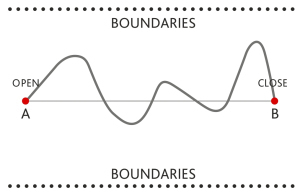
You have a minimum and a maximum range that you allow the phone call (conversation) to swing up and down between before you actively push back the conversation to the middle line.
That means you’re not going to be fluff-talking about totally irrelevant stuff.
As the “sales guy”, your job is to keep the conversation on a straight line and navigate it to the close. This will happen automatically after you’ve done it enough times. You will become calibrated and know this stuff by heart.
You use your tonality to lead the conversation, deal with objections / reframe the situation / bring back the conversation to the line.
Your tonality is everything.
P.S:
If you think this is an interesting topic, I highly recommend you to watch the following movies:
–Boiler Room.
–Glengarry Glen Ross
–The Wolf of Wall Street
Do you have any useful tips for talking over the phone or to get people to do what you want?
Photo Credit: Sean Mcpheat
The post How to Get People to Do What You Want Over the Phone appeared first on Startgainingmomentum.
March 2, 2014
The Real Reason Why You Should Focus on Leaving a Legacy
 There comes a time in your life when you start thinking about what you will leave behind after you die. What will be your legacy? How will you be recorded into the annals of history?
There comes a time in your life when you start thinking about what you will leave behind after you die. What will be your legacy? How will you be recorded into the annals of history?
“Enlightened” people will tell you to that it’s a pipe dream. That it’s a devious scheme devised by your ego to overcompensate for a purposeless life.
You will start thinking about whether leaving a legacy is really what you want to do. . . .
Evolutionary Reasons Why You Should Leave a Legacy
In a hundred years from now
Everyone who’s living on this planet will be dead
So it’s inconsequential really
All the shit that you talk
All the bullshit that you stand for
It’s more important what, what you’re ready to build
What you’re ready to pass down to your children
What you’re ready to create
You better fuckin’ remember that
When you challenge a motherfucker like me
Remember, I’m the dominant species
– Immortal Technique
(This is the intro of a song called Dominant Species. I listen to this often in the gym to link it with powerful emotions. Whether I believe what Immortal Technique is saying or not, is irrelevant. I use it for motivational purposes. )
The notion of wanting to leave behind something that is greater than you when you die is a very alluring.
Many people buy into it for the “wrong” – inaccurate – reasons. They buy into it because it sounds cool. And it does sound very cool.
But, they don’t consider why it might be a good/bad idea to think about leaving behind a legacy.
Let’s look into some common information on the topic.
A lot of people speak of the importance of creating something of your own:
–They speak of finding an original way to produce value and building a long-lasting business based on it.
–They speak of gaining muscle and crafting the body to reflect one’s inner strength.
–They speak of creating art that will forever communicate to people on a universal level.
In short, they speak of leaving behind a legacy that goes beyond the present moment.
There are many people who are attracted to this philosophy. Especially men.
Why?
Simple, because it’s in our DNA.
Show me a man who’s not focused on any of these three things and I’ll show you a thoroughly unhappy and confused man.
Such a man goes against the genetic wisdom inherently built into his body through millions of years of trial and error. Genetic wisdom achieved through a process of evolutionary trial and error where the ultimate arbiter of “right” and “wrong” has been death. Not reprimands from society, authorities, or peer pressure, but death.
Such a man is obeying man-made rules imposed on him by someone else. Those rules were most likely created for the purpose of giving power to its creators over other men.
Societal rules are arbitrary, they come and go. Genetic rules do not.
Is it then strange that such as man will suffer greatly throughout his life?
Why You Shouldn’t Focus on Leaving a Legacy
The following quote by Marcus Aurelius sums up why you shouldn’t:
Throwing away then all things, hold to these only which are few; and besides bear in mind that every man lives only this present time, which is an indivisible point, and that all the rest of his life is either past or it is uncertain. Short then is the time which every man lives, and small the nook of the earth where he lives; and short too the longest posthumous fame, and even this only continued by a succession of poor human beings, who will very soon die, and who know not even themselves, much less him who died long ago.
– Marcus Aurelius
Many other people have said similar things. The logic goes something like:
“You have one life. Don’t waste it deferring happiness. Don’t postpone living. Don’t seek to impress others. Just live and enjoy your life.”
That statement is hard to argue with or refute, because it’s too general.
But, if we deconstruct that statement piece by piece and make it more specific, we find that:
“You have one life.”
–Most likely. I can’t prove otherwise.
“Don’t waste it deferring happiness.”
– Define happiness.
I define happiness as the state in which you experience an abundance of positive hormones and neurotransmitters. How this state is achieved is arbitrary and different between people.
In my experience, when people who preach that others should “live now and not put off happiness” they call “happiness” what I call instant gratification. And, as a general principle, delaying instant gratification is actually preferable to engaging in too much instant gratification.
Why?
Because delaying gratification will build discipline, keep you sharp, and allow you to enjoy life more.
How?
By making sure that you avoid raising your threshold for stimulation excessively. (This makes your brain require less external stimulation to feel “happy”.)
What does that mean?
That you don’t mess up your brain – E.G your dopaminergic pathways – by engaging in frequent:
Multitasking.
Candy eating (sugar) or drug use.
Masturbating.
Watching TV, movies, or playing video games.
Scanning news sites or social media sites for updates.
And various other ways of getting your stimulation quickly without having to do anything to deserve it.
If you do these things excessively, especially the multitasking, you’ll be. . . Actually, you’ll be normal. And that’s the scary thing!
Seriously though, you’ll find it a lot harder to concentrate because your miserable brain is always craving stimulation and doesn’t want to do just one thing at a time. For a person with a brain in this condition meditation = torture.
The punchline:
By focusing on a goal and delaying instant gratification your brain will start producing dopamine, which in turn makes you feel strong, curious, and focused. How strongly you experience the reward of delaying gratification depends on a number of things.
We have now — already — squashed the generalized argument that we started with.
But let’s kick the corpse of that argument around a bit more, for amusement. “Finish him…“
“Don’t try to impress others.”
–True, it’s usually a waste of time. But the error in this argument is the assumption that wanting to leave a legacy is only for show. That it’s something done only to impress other people.
It doesn’t strike the person making the argument that you’d want to leave a legacy for your own sake: because there’s nothing more brilliant that you can think of accomplishing with your life.
Now let’s put the nail in the coffin.
“Just live and enjoy your life…”
–Again, it’s a matter of definition. Different people enjoy different things.
To “just live your life” is easier said than done.
Intelligent people can’t turn off their brains and “just live”. There are only two types of people who can: stupid people and skilled meditators. And while I would consider myself a skilled meditator, I’ve got more important things to do than to sit around in bliss all day.
I have “just lived my life”.
I’ve done YES-man challenges. I’ve made decisions by rolling a dice and by flipping a coin. I’ve done spontaneous and crazy things. I know from experience that it puts you into a temporary adventure mode. And I do think it’s good practice for the PFC to engage in from time to time, because it breaks you out of your regular routine.
But, I don’t think it’s a smart thing to do for extended periods of time. When I’ve done it, I’ve quickly felt aimless, empty, and bored. I’ve felt like I’m wasting my potential on trivial and non-productive tasks.
Of course, there’s no point in telling stupid people that. They will just say:
Duuude, don’t think so much. Just, like, enjoy life, you know what I’m sayin’?
But I disagree. I believe that the unexamined life isn’t worth living.
An active brain will keep inquiring until there are no more questions to be answered.
The superior man thrives by thinking. Not by dumbing himself down through excessive stimulation and lowering the capacity of his foremost tool — his brain.
That Means You Should Focus on Leaving a Legacy
You should:
Think about leaving a legacy of greatness. What will you build? What will you contribute? Who will prosper from it? The more you think about your legacy, and the more mental energy you devote to its creation, the more detailed your vision is, the more motivation you will be able to draw from it.
Delay gratification. Because it will increase your dopamine levels and make you feel better. The more you do it and the stronger your willpower becomes. It’s like a muscle.
Live as if you were to live for several hundred years. Plan ahead. Don’t let time become a mental restriction or impediment to formulating important long-term plans. Because you may actually live to be several hundred years old given the advances of science. But probably only the richest people will be able to afford it.
Motivation is a scarce resource of immense value. Therefore, as a pragmatic person, you should focus on leaving your legacy. You should use it as a mental tool. It will eventually become like an engine from which you can refuel motivation.
The post The Real Reason Why You Should Focus on Leaving a Legacy appeared first on Startgainingmomentum.
February 23, 2014
23 Excellent Books You Should Read
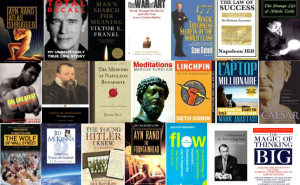 How can you read so much? Where do you find the time? Don’t you have an education to attend to? Aren’t you a serious student?
How can you read so much? Where do you find the time? Don’t you have an education to attend to? Aren’t you a serious student?
–What a joke.
Many people seem to think that the university has a monopoly on education and knowledge. But that’s wrong — dead wrong.
The only education is self-education.
In a few months I’ll be graduating from university and getting my degree. Just like many other people. Should I be worried? Will this make my degree less impactful on the job market?
– That’s a how a loser thinks. And he should, because how could he possibly be confident without any real knowledge or competence?
A degree is just a paper, a silly diploma. Having a diploma doesn’t automatically make you smart or mean that you can produce value. To do that you gotta read wide and well.
My peers read maybe 1-10 popular books per year to keep up with the trends. They read silly detective stories. Compare that to a person who reads 30-100 serious books per year, and applies what he/she learns. These two people aren’t even comparable in terms of intelligence and competence, the information gap is just too wide.
——
Knowledge is meant to provide confidence, competence, and freedom. Does school provide such knowledge? I don’t think so.
School mostly teaches outdated theory and politically correct bullshit, like corporate social responsibility — CSR.
Any serious person with drive, intelligence, and ambition knows this. And eventually realizes that there are better places to invest his time.
In 2013 I read 80 books. I think I’ll read about 55-60 books in 2014, since it looks like I’ll be much more busy with other things this year.
Take reading very seriously. Never skimp on your self-education. You should allocate a certain amount of time each day (at the very minimum 30 minutes) to reading and learning new things.
Few people become rich or successful without being voracious readers. The only exception that comes to mind is Rick Ross (not the rapper). He became a multi-millionaire without even being able to read. He didn’t learn to read until he was put in jail and had to study law to get himself out of there.
With that said, here are a number of books I like and recommend:
Note: I have not placed them in any specific order of importance.
Biographies
Caesar: Life of a Colossus"> Caesar: Life of a Colossus">Caesar: Life of a Colossus – Adrian Goldsworthy
Caesar: Life of a Colossus">Caesar: Life of a Colossus – Adrian Goldsworthy
Very detailed depiction of Caesar’s entire life as well as other important events in the Roman Empire. You’ll learn much about the history of Rome, how war was waged, and how the political system worked.
Memoirs of Napoleon - Complete"> Memoirs of Napoleon Bonaparte – Louis Antoine Fauvelet de Bourrienne
Memoirs of Napoleon Bonaparte – Louis Antoine Fauvelet de Bourrienne
As far as I know, this is the longest and most accurate biography on Napoleon Bonaparte’s life. You may consider reading an easy and “funnier” book on Napoleon before reading this one, as a strategy of making this one more interesting.
You can get it for free on Project Gutenberg if you care to read 1200 pages on your computer screen.
The Greatest: Muhammad Ali">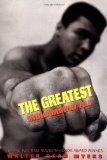 Muhammad Ali : The Greatest
Muhammad Ali : The Greatest
I got the old version from 1970s with a yellow cover (now priced at $110 at Amazon, cool for me). But it’s the same book.
What I like most about this book is that it gives such a clear peek into Ali’s work ethic and mindsets.
There’s was no coincidence that he became as successful as he was. He outworked every other boxer. He outpromoted every other boxer. He outentertained every other boxer.
The Strange Life of Nikola Tesla"> The Strange Life of Nikola Tesla: Autobiography
The Strange Life of Nikola Tesla: Autobiography
46 pages of awesomeness. The fact that Tesla wrote down his life story in just 46 pages says a lot about his personality. Tesla was probably the closest thing to a superhuman genius this world has ever seen. His childhood was very special.
You can get the PDF for free here.
I loved reading this book. Arnold is much smarter than he is given credit for. It was especially interesting to learn about his humble beginning. His inability to compromise on goals is impressive. His networking, marketing, and self-discipline strategies are too.
The Wolf of Wall Street (Movie Tie-in Edition)"> The Wolf of Wall Street (Movie Tie-in Edition)">The Wolf of Wall Street
The Wolf of Wall Street (Movie Tie-in Edition)"> — Jordan Belfort
The Wolf of Wall Street (Movie Tie-in Edition)">The Wolf of Wall Street
The Wolf of Wall Street (Movie Tie-in Edition)"> — Jordan Belfort
Very well-written and entertaining book. It also contains some great practical lessons in business, salesmanship, and charisma if you read between the lines.
If you’re not very interested in the book, but would like to know some of these lessons, you can read my post on Addicted2Success.
 The Young Hitler I Knew">The Young Hitler I Knew
The Young Hitler I Knew">–
August Kubizek
The Young Hitler I Knew">The Young Hitler I Knew
The Young Hitler I Knew">–
August Kubizek
There are many biographies on Hitler’s life. But there are very few books on his early life.
This is an excellent read for anyone interested in Hitler. It’s said to be the most accurate portrait of the young Hitler. Unfortunately it doesn’t cover the darkest and most crucial period of his life from 1908-1914 . That epoch will probably always remain a mystery.
Philosophy
Atlas Shrugged"> Atlas Shrugged">Atlas Shrugged
Atlas Shrugged">– Ayn Rand
Atlas Shrugged">Atlas Shrugged
Atlas Shrugged">– Ayn Rand
Ayn Rand wrote Atlas Shrugged & The Fountainhead for the purpose of portraying the ideal man. She succeeded. I have never read anyone who’s done a better job than her. Read the book!
Rand does a fine job of depicting the boring and empty lives that most people lead: lives lacking in integrity and self-respect, leading to an impossible quest for external validation to make up for what these people cannot achieve.
The Fountainhead"> The Fountainhead">The Fountainhead
The Fountainhead"> — Ayn Rand
The Fountainhead">The Fountainhead
The Fountainhead"> — Ayn Rand
Man’s ego is the fountainhead of all progress.
This book is a lot like Atlas Shrugged, but better. It’s more concise (700 pages vs 1200 pages) and entertaining. In Atlas Shrugged, the story suffers from Rand’s lengthy philosophical outbursts, and the philosophy sometimes suffers from her lengthy descriptions of the environment. In The Fountainhead there isn’t much of that.
The main reason you should read The Fountainhead and Atlas Shrugged is because by doing so you will strengthen the mental image about who you will become and the life you will lead.
Man's Search for Meaning"> Man's Search for Meaning">Man’s Search for Meaning
Man's Search for Meaning"> — Victor Frankl
Man's Search for Meaning">Man’s Search for Meaning
Man's Search for Meaning"> — Victor Frankl
Victor Frankl is a Jewish survivor of the Nazi concentration camps. But he’s also a smart psychologist and a prolific writer.
In this book he thoroughly analyzes what made the terrible circumstances of concentration camps endurable to some prisoners — such as himself — but unendurable to most others.
What was it that gave life meaning in such a situation? Why did some people break down physically as well as mentally, while others were able to stay somewhat healthy under the gruesome conditions?
Frankl has written more books, but they suck. This one is good. It’ll teach you much about the power of visualization and mental rehearsal.
Michel de Montaigne - The Complete Essays (Penguin Classics)"> Michel de Montaigne - The Complete Essays (Penguin Classics)">Complete Essays of Michele de Montaigne
Michel de Montaigne - The Complete Essays (Penguin Classics)">Complete Essays of Michele de Montaigne
Ever heard the Shakespearian quote, “Nothing is either good or bad but thinking makes it so” ?
Shakespeare stole that from Montaigne’s, “Things are not bad in themselves, but our cowardice makes them so”
Montaigne is the guy who created the French word “essay”. Essay = to test your thoughts on a topic. He is also one of my role models when it comes to practicing metacognition.
This is the best collection of philosophical essays I have ever read. Much better than Emerson’s or Bacon’s.
Book 3 is the best one, in my opinion.
Spiritual Enlightenment, the Damnedest Thing: Book One of The Enlightenment Trilogy"> Spiritual Enlightenment, the Damnedest Thing: Book One of The Enlightenment Trilogy">Spiritual Enlightenment: The Damndest Thing
Spiritual Enlightenment, the Damnedest Thing: Book One of The Enlightenment Trilogy"> — Jed Mckenna
Spiritual Enlightenment, the Damnedest Thing: Book One of The Enlightenment Trilogy">Spiritual Enlightenment: The Damndest Thing
Spiritual Enlightenment, the Damnedest Thing: Book One of The Enlightenment Trilogy"> — Jed Mckenna
The first book of a trilogy about enlightenment.
If you think enlightenment means to experience a state of constant bliss, and that it is easily attained, think again…
Jed McKenna is the best writer I’ve ever read. His sense of simplicity, taken to the maximum, permeates through all the books. Even the design and text.
If you like this book, you will also like the other two books in the trilogy. And the follow-up book, Jed McKenna's Theory of Everything: The Enlightened Perspective">Jed Mckenna’s Theory of Everything: The Enlightened Perspective. They’re all written in the same characteristic way.
Meditations"> Meditations">Meditations
Meditations"> — Marcus Aurelius
Meditations">Meditations
Meditations"> — Marcus Aurelius
Marcus Aurelius was the Roman philosopher king. Meditations was one of his private journals in which he carried on a philosophical dialogue with himself to attain accurate thinking.
This is the single best piece of stoic literature. You don’t need to read Epictetus, Seneca, Zeno, etc This book will give you 80 % of the content you’re looking for if you’re interested in Stoicism and in achieving peace of mind during the toughest of situations.
I’ve listened to the audio book about 20 times for repetition’s sake.
The most important thing I got from it is to always ask myself:
“Is this one of the necessary things?”
You can get the PDF for free here.
Self-Development
The Law of Success In Sixteen Lessons by Napoleon Hill">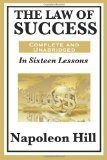 The Law of Success In Sixteen Lessons by Napoleon Hill">The Law of Success in Sixteen Lessons
The Law of Success In Sixteen Lessons by Napoleon Hill"> — Napoleon Hill
The Law of Success In Sixteen Lessons by Napoleon Hill">The Law of Success in Sixteen Lessons
The Law of Success In Sixteen Lessons by Napoleon Hill"> — Napoleon Hill
The only book you need to read from Napoleon Hill, and really, traditional self-development in general. Every other book in the genre is merely a knock-off. Save yourself some time and read this book thoroughly instead.
Don’t read Think and Grow Rich or Success Through a Positive Mental Attitude. Read the original book. Always try to get as close to the source as possible, instead of settling for dumbed-down versions of the same material.
Flow: The Psychology of Optimal Experience">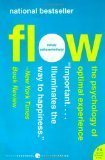 Flow: The Psychology of Optimal Experience">Flow
Flow: The Psychology of Optimal Experience">– Mihaly Csikszentmihalyi
Flow: The Psychology of Optimal Experience">Flow
Flow: The Psychology of Optimal Experience">– Mihaly Csikszentmihalyi
You don’t have to know how to pronounce his name to read the book. No one can.
You’ll learn the psychology of how to get yourself into flow — the state in which you do optimal work, feel awesome, and do little conscious thinking. I am always in flow at the gym.
You’ll also learn a lot of cool and useful trivia. I highly recommend you read this book. I read it a few years ago after one of the richest men in Sweden (now dead) told me to read it. He told me it was the most important book he had ever read.
The Magic of Thinking Big">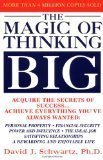 The Magic of Thinking Big">The Magic of Thinking Big
The Magic of Thinking Big"> — David J Schwartz
The Magic of Thinking Big">The Magic of Thinking Big
The Magic of Thinking Big"> — David J Schwartz
Probably my second favorite traditional self-development book. Contains a lot of concrete and practical advice that you can immediately implement. It also contains plenty of ways for you to think more efficiently when faced with certain challenging situations.
177 Mental Toughness Secrets of the World Class: The Thought Processes, Habits and Philosophies of the Great Ones, 3rd Edition"> 177 Mental Toughness Secrets of the World Class: The Thought Processes, Habits and Philosophies of the Great Ones, 3rd Edition">177 Mental Toughness Secrets of the World Class
177 Mental Toughness Secrets of the World Class: The Thought Processes, Habits and Philosophies of the Great Ones, 3rd Edition"> — Steven Siebold
177 Mental Toughness Secrets of the World Class: The Thought Processes, Habits and Philosophies of the Great Ones, 3rd Edition">177 Mental Toughness Secrets of the World Class
177 Mental Toughness Secrets of the World Class: The Thought Processes, Habits and Philosophies of the Great Ones, 3rd Edition"> — Steven Siebold
It has a cheesy cover, but it’s a good and concise book. You can read it in one or two sittings.
It’s about all the significant differences between champions and average people.
If you aren’t a big reader, and if you aren’t already “super-knowledgeable” about self-development, I would recommend that you begin by reading this book because it’s very easy to read and it gives a great overview.
The War of Art: Break Through the Blocks and Win Your Inner Creative Battles"> The War of Art: Break Through the Blocks and Win Your Inner Creative Battles">The War of Art
The War of Art: Break Through the Blocks and Win Your Inner Creative Battles"> — Stephen Pressfield
The War of Art: Break Through the Blocks and Win Your Inner Creative Battles">The War of Art
The War of Art: Break Through the Blocks and Win Your Inner Creative Battles"> — Stephen Pressfield
Great book on developing a stronger work ethic. Teaches you to disregard any illusions of easy success. Just focus on doing the work, and it’ll turn out well eventually. Beat the resistance every day.
If you’ve read my book Breaking out of Homeostasis, you’ll find that what Stephen Pressfield refers to as “the resistance” is probably homeostasis. However, Pressfield is a lot more spiritual/metaphysical about it.
You will be inspired by reading it.
Other Books
The 4-Hour Workweek: Escape 9-5, Live Anywhere, and Join the New Rich (Expanded and Updated)">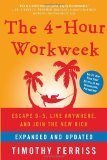 The 4-Hour Workweek: Escape 9-5, Live Anywhere, and Join the New Rich (Expanded and Updated)">The 4-Hour Work Week
The 4-Hour Workweek: Escape 9-5, Live Anywhere, and Join the New Rich (Expanded and Updated)"> — Tim Ferriss
The 4-Hour Workweek: Escape 9-5, Live Anywhere, and Join the New Rich (Expanded and Updated)">The 4-Hour Work Week
The 4-Hour Workweek: Escape 9-5, Live Anywhere, and Join the New Rich (Expanded and Updated)"> — Tim Ferriss
The book title is an oversell, just like everything else from Tim Ferris. Working four hours per week is for lazy people. The law of compensation is always at work. You either outwork and outsmart people for a number or years, or you work slowly all your life, like the average person does.
However, this book is very good and it’s filled with practically useful strategies. It’ll open up your mind to some of the things that are possible to do — professionally speaking — if you do things differently.
The Laptop Millionaire: How Anyone Can Escape the 9 to 5 and Make Money Online">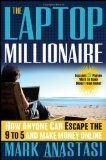 The Laptop Millionaire: How Anyone Can Escape the 9 to 5 and Make Money Online">The Laptop Millionaire
The Laptop Millionaire: How Anyone Can Escape the 9 to 5 and Make Money Online"> — Mark Anastasi
The Laptop Millionaire: How Anyone Can Escape the 9 to 5 and Make Money Online">The Laptop Millionaire
The Laptop Millionaire: How Anyone Can Escape the 9 to 5 and Make Money Online"> — Mark Anastasi
Even if you currently don’t have any ambitions of making money online you should still read this book, because it’s filled with cool ideas and strategies. Some are slightly outdated.
There’s zero fluff in it.
Another reason you should read it is because it will broaden your perspective and it will make you realize some of the things that are possible to do. You’ll probably get some good idea from reading it. And if you get even a single good idea from reading a book, I’d say it was a book well worth reading.
Confessions of an Advertising Man"> Confessions of an Advertising Man">Confessions of an Advertising Man
Confessions of an Advertising Man"> – David Ogilvy
Confessions of an Advertising Man">Confessions of an Advertising Man
Confessions of an Advertising Man"> – David Ogilvy
Ogilvy was one of the greatest admen ever — and a terrific writer. If you’re in marketing, advertising, or writing, you need to read this book. It’s filled with brilliant stuff from the first page to the last.
The book is short, but highly concrete. Contains many practical tips on writing, presenting and pitching, and creating ads.
It took me a surprisingly long time to finish this book, because I transcribed almost the entire book.
You can get the pdf free here.
Linchpin: Are You Indispensable?">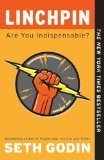 Linchpin: Are You Indispensable?">Linchpin: Are You Indispensable?
Linchpin: Are You Indispensable?"> – Seth Godin
Linchpin: Are You Indispensable?">Linchpin: Are You Indispensable?
Linchpin: Are You Indispensable?"> – Seth Godin
If you’re an employee looking to get an edge over your peers, you must read this book. You must become indispensable. When you are indispensable you can get paid much more, because the company desperately needs you.
How do you do that, how do you become indispensable?
By becoming the go-to guy for different things. By handling essential clients. By over-delivering value. By daring to oppose the status quo. By daring to speak up and give useful feedback when other people are yes-men.
Free pdf book written by one of the smartest and most successful people in the world.
The first half of the book is devoted to Dalio’s life philosophy and the second half is devoted to managerial principles and how you set up a company to work by itself without your personal involvement.
Read it!
Resources:
If you’re not a fan of reading entire books, or if you don’t currently have the money to buy books (don’t skimp on self-education!), here’s a big list of notes from great books you can read online.
The notes are taken by Derek Sivers, an all-round smart guy.
Let’s talk about reading:
Which is the most important book you’ve ever read? Why? You may only recommend one book at a time.
The post 23 Excellent Books You Should Read appeared first on Startgainingmomentum.
February 16, 2014
The “Non-Woo” Version of The Law of Attraction (And How You Can Practice it Daily)
[image error]The Law of Attraction actually works. But not in the way that most people think it does.
I recently got $1000 deposited into my bank account for no reason. That’s enough money to sustain me for an entire month.
However, I never asked for that to happen. It was freak luck. Nothing else. It was not the Law of Attraction that gave me that money.
Let me give you the neurological explanation for why the LoA works, as well as my personal strategy — the strategy that I have been practicing for a few years with incrementally improving results.
This is one of the core things that I practice daily, and it’s something that I believe to be essential for success in any area of life.
But first, let’s take a look at how most people think the Law of Attraction works.
The Common Interpretation of Law of Attraction
Here’s how it’s supposed to work, according to dumbed-down movies: you state your desires and wait for it to manifest.
You’ve probably heard the following catchphrase:
“I told the Universe I needed money… Suddenly checks arrived in my mail box instead of bills. It was like magic!”
But that’s bullshit.
It doesn’t matter if you’re the best person in the world at “manifesting your desires”, if you don’t know basic economics. You must provide value to get money.
Your life cannot change for the better — financially speaking — unless you find an efficient solution for helping other people achieve their goals. That’s economics 101, you provide a valuable service or product in exchange for money.
Point being: You don’t manifest shit. You make your own luck.
But, if you can find ways of getting your brain to keep focused on the right things it certainly helps you in making your own luck. Stay tuned til the end to find out what I mean.
Example: Stupid People on a Forum
Let’s take a closer look at how some people interpret the LoA. And just exactly how it fits into their lives…
Here are a number of funny messages that I stole from the Power of Attraction Forum from a thread about something called “RS” — Remote Seduction. These people are using their mind powers to get people to fall in love with them.
They begin by telling each other of their cool, supernatural experiences of making people of the opposite sex notice them. Then they get into a “highly scientific” discussion about how to use Remote Seduction and the LoA, trying to find their way towards a best practice:
[Note: My commentary is in normal text, the forum comments are in grey.]
“Maybe it helps to take a break of 1-2 days  That’s how I do it.”
That’s how I do it.”
–Another user responds, reassuringly:
“I don’t do it every night.so i take break sometimes :)”
–The first user responds:
“That’s good  all I can say is stay positive and keep trying as you never know when the universe fulfills your desires
all I can say is stay positive and keep trying as you never know when the universe fulfills your desires  “
“
–Just wait for the universe to fulfill your desires. Eventually your begging will reach the universal god and it will grant your wish, if it’s having a good day and feels like it.
This sounds like a smart plan: Don’t take any personal responsibility for making your desires come true.
Later, another user gives a more in-depth explanation for how the LoA should be used:
“The thing is that the process helps you believe that your desire will come true. It shouldn’t be used to bring your desire to you. By using RS in that way, you’re using it out of desperation or inpatience, sending a message of discomfort of your current lifestyle. REMEMBER: It’s not something you do X times and then you have your guy/girl by your side. Stay happy and that’s the most important thing that you need know!”
–Did I understand correctly:
This magic superpower should only be used for altruistic purposes?
It has nothing to do with skill or practice, but works purely on random?
Some other user (I didn’t copy the comment) isn’t seeing any results from doing the Remote Seduction mental magic. She begins to wonder if something is wrong, and needs to reaffirm her beliefs. She has become insecure and skeptical. She lists some mundane occurences during the last days.
Another, more experienced, user responds to her:
“those are RS “Symptoms” you mentioned above! So KNOW that its working. My guy is acting soooo weird sometimes when he see’s me he smiles makes eye contact other times he freaks out! and looks confused or even scared(by his own emotions towards me) it’s like im dealing with TWO completely different people here…! is completely Logical for them to act this way.”
–Indeed. It must be working. Boyfriends that smile at their girlfriends is not at all standard behavior.
User Coley915 leaves another confused message.
“Lately I feel it’s hard to do RS. I just don’t have any energy to put into it. Some days I try and I just can’t. Other days I have really intense RS sessions. I guess part of me feels stupid that I am even trying to attract someone back by doing this in the first place. I’m torn because I love J so much and I miss him. I just want him to come back to me.”
–Yes, Coley915, this will get you your man back. There is no more efficient way of accomplishing your goal. Especially not talking directly to him and trying to assert some personal influence.
You just keep thinking hard about how much you want him, and don’t do anything about it. Things should come to you effortlessly. Remember, if you exert any real effort, you must be using the LoA wrong!
—————————
I think you get the point.
These people don’t understand that they actually have to put in some intelligent effort to get what they desire.
They don’t believe in the Law of Compensation. They think they can get something for nothing.
They will do anything — including resorting to magic thinking — in order to avoid putting in any real effort. They can’t face the reality that they need to improve and become more competent before they can get the things they want in life.
It doesn’t matter how skilled at Remote Seduction a 300 lbs woman is. She still has to lose weight.
It doesn’t matter if you slap a suit and tie on a loser guy. He’s still a loser, and nothing will change that but hard work and action.
To clarify: I’m not talking down on wishing, doing affirmation, and formulating goals. But none of those things matter unless you purposely place yourself in situations that are conducive to help you achieve those things.
The Neurological Explanation for the LoA

Practice your brain’s pattern recognition.
When I first learned about the Law of Attraction I was highly skeptical to it. I am a critical thinker and I didn’t buy the dumbed-down explanations for how it worked. I saw that it was a marketing ploy to sell videotapes to the unthinking masses.
However, this actually impeded me, because it made me dismiss everything associated to the LoA. Including writing down my goals, stating my desires, and doing affirmations. I was unsure about those things for a long time — until I began seeing positive results from doing them.
Here’s the real explanation for how the LoA works. It has to do with using certain parts of your brain. And you can practice them regularly. Here are the main parts of the brain that are involved and what they do:
The prefrontal cortex (PFC) is used to sustain attention at a task, or maintain a stream of thought. It’s with this part of the brain that you make decisions and associate with “wakeful consciousness”.
The reticular activating system (RAS) together with the thalamus relay information to other parts of the brain. They then filter out all incoming stimuli except for the miniscule amount of information deemed as necessary to bring up to your immediate attention.
In combination, these processes allow human beings to set goals and find ways of achieving them by spotting unlikely opportunities:
PFC: Set goal X + repeat it by consistently focusing on it = sustained attention
RAS & Thamalus: Sustained attention on goal X filters out unnecessary information and helps you find what you’re looking for.
It’s not magic. It’s merely about telling your brain what to look for while you take a lot of action. That is intelligent effort.
Practical Example
Let’s say you run a business and your current goal is to build a sales team. You are now looking to recruit a sales person.
You go about your day and socialize with people.
As you go to your favorite lunch spot you hear a guy in the group in the queue, in front of you, talk about how he sold his car. You listen in on the conversation a bit longer.
The guy starts talking about how he skillfully got the buyer to pay more for the car by using clever sales tactics he’d learned from a book. He then says to his friends that he’s got a new, much cooler car. He tells them he got it by getting several of his friends to make fake offers to the seller — and then got his friends to withdraw their bids in the last second to make his own, lower bid, become the last one left. This made the seller desperate, and he got the car cheaply.
At this point you butt into the conversation and ask the man what he does. You then talk him into taking a position in your sales force.
How did this happen?
Let’s break it down:
It’s highly unlikely that you would have even paid attention to this conversation unless you’d specifically told your brain to scout for candidates to your sales force.
And even if you had, you wouldn’t have made appropriate the connection and thought: “oh, I can use this event to my advantage. I gotta butt into their conversation and make it happen!” unless you were certain that it would help you in accomplishing your goal.
How to Practice Your Brain
If you do the following things your brain will let you notice opportunities to a higher extent, and you will find solutions and smart strategies that you otherwise would’ve missed if you had not told your brain to focus on finding them.
Practice your concentration. Read books, meditate, visualize, exercise, do anything that is conducive to helping you focus for prolonged periods of time. (PFC practice).
Go about your day looking for a specific thing. Limit your selection to just a few things. Your attention span can’t handle keeping more than a few important goals in your mind at once. (RAS & thalamus practice).
Remind yourself what you are looking for. Do repetitions of various sorts. Tell yourself in your head “I’m looking to do X today!” many times throughout the day. Write down the objectives of the day on a note and look at it every hour.
Words are a lens to focus one’s mind.
– Ayn Rand –
Long-term readers also know that I am very keen on Universal 43623 Dry Erase Board, Melamine, 36w x 24h, Satin-Finished Aluminum Frame keeping a whiteboard and a commonplace. These are the most efficient ways I’ve found to keep focused on the big picture of what I need to do.
keeping a whiteboard and a commonplace. These are the most efficient ways I’ve found to keep focused on the big picture of what I need to do.
What is your opinion on this? What do you think about the Law of Attraction?
Photo credit: Pedro Constantino
Photo credit: Pedro Constantino
The post The “Non-Woo” Version of The Law of Attraction (And How You Can Practice it Daily) appeared first on Startgainingmomentum.
February 9, 2014
Why You Should Compare Yourself to the Greatest Men in History
 Hey friend,
Hey friend,
Today you’re going to learn to do something that’s incredibly important in the long-term.
Topic of discussion: How to consciously compare yourself to great historical men.
There isn’t much to explain, but there’s much to do. This is yet another elite mental habit that you need to establish if you want to get really, really successful and keep hustling when other people get content and complacent. What I’m about to tell you is also a great mental trick to boost motivation.
Know Thy Brain
A fundamental fact about the human brain is that it automatically compares things. Nothing is seen without relation to another thing. The brain focuses on an object and uses it as a reference point for one or many other things. This is a very powerful heuristic — and you should consciously use it to your advantage.
This way that your brain compares one thing to another has many real life implications, and explains things like:
Why hot girls have ugly-ass friends. (It makes the hot girl look even hotter.)
Why we think a product is better/cheaper/cooler than it really is when it’s placed next to another product that emphasizes this aspect. This trick is frequently used in sales and retailing. It’s called anchoring.
Why we easily mistake the size and distance of objects.
Dunbar’s Number. We have a finite number of personalities that we consciously or unconsciously compare ourselves to in relation to different aspects of our life.
Consider this a follow-up to what I previously wrote about Dunbar’s Number, except with more practical use. This is especially important to young readers — because the earlier you start consciously comparing yourself to great people, the more it adds up cumulatively in the long-term. The earlier you start practicing this skill, the quicker you’ll become unreactive to stupid people.
Here’s what you’ll do:
You are going to purposefully place the role models that inspire you the most in your 150 mental “Dunbar’s-Number-slots”. And you are going to think of them daily, until they feel like real people.
This will help you greatly because it will raise your standards of conduct far above that of average people who compare themselves to their mediocre buddies.
Do this:
Find great historical men that you look up to. If it’s a living person that’s fine too, but there’s less biographical information about people currently living. And historical men are usually cooler.
Find as much, and as accurate, information as possible on these people. You want to reach the point where your brain starts thinking that they are “real” and “alive”. That’s when they’ve successfully become part of your “Dunbar’s-Number-slots”.
Keep this up for years. Keep doing the repetitions.
And how do you know that they are part of your Dunbar’s Number?
–Here’s a great indicator. When you are able to answer the question, “What would X do in this situation?”, then you’re well on your way.
How will this help you?
–You will improve the odds of your brain comparing itself with your closest peers or acquaintances. You will be prone to compare yourself more with the great historical men. And in doing so you will be motivated to do great things and put in more effort where others get lazy.
This is not an immediate process. It takes time and much mental effort. But it does produce results — and it is within your power to do. Therefore you should do this daily.
In a practical situation this means that you’re less likely to fall under the spell of bad judgment and waste time doing, thinking, or talking about petty things.
When you see your peers wasting time discussing the Olympics, messing up their sleep schedules by partying too hard, and losing discipline, you will stand there firm like a rock. For in your head echoes the question:
What would Caesar do here?
What would Hannibal do here?
What would Churchill do here?
The earlier in life you start doing this, and the more you practice it, the more you stand to gain. In my experience, very few people do this at all. I don’t think I know of more than a few people who do this, except myself. And none of them do it as much as I.
Resources:
You might enjoy reading this post I wrote for Addicted2Success: Why You Should Study Historical Men. It goes more in-depth on reasons for why you’d want to do this.
A Starting List of Great Historical Men for You to Study:
If you don’t already know who to study and learn more about, I have a few helpful examples to get you started:
Julius Caesar
Napoleon Bonaparte
Henry Ford
Winston Churchill
Nikola Tesla
Thomas Edison
Thomas Jefferson
Benjamin Franklin
Calvin Coolidge
John F Kennedy
Josef Stalin
Adolf Hitler
Hannibal Barca
Genghis Khan
Alexander the Great (he’s the guy in the featured image of both my last two posts)
John D Rockefeller
Ralph Waldo Emerson
Henry David Thoreau
Albert Einstein
Marcus Aurelius
Gnaeus Pompeius
Seneca the Younger
Cato the Younger
Marcus Cicero
Aristotle
Socrates
Plato
Leonardo Da Vinci
Francis Bacon
Johann Wolfgang von Goethe
Start by reading their Wikipedia and Wikiquotes pages. By doing that you’ll get a good overview and gain investment from your brain. This will make it more interesting and easy to continue studying these men. It will motivate you to read their biographies and historical books to learn more about the context in which they lived.
What to Do Next:
– Aid other readers — and me — by sharing your favorite great historical men to study. If you don’t know of any, just tell us about some successful person that we can learn more from by studying!
Photo credit: Evgeny Legedin
The post Why You Should Compare Yourself to the Greatest Men in History appeared first on Startgainingmomentum.
February 2, 2014
The Most Important Thing for how You Build Long-Term Motivation
 Do you execute on plans only when you feel like it?
Do you execute on plans only when you feel like it?
Do you postpone doing things until you feel motivated enough to take action?
If that’s the case then you’re being stupid.
Let me tell you why.
I’ve been getting some questions lately – both from readers and from people in real life – about motivation.
These people have asked what I do to motivate myself, how I stay motivated, and how they can do the same.
–I do a lot of different things. I go to great lengths of effort to become more motivated. But probably the single most important thing is to look at motivation as a consistent long-term practice – and not something fickle that you randomly experience from time to time.
To do this you need to shift from the approach of relying on “short-term boosts of good feelings” to do things, into a system-oriented approach for building real motivation.
So, what does this mean?
–In short: that you must come up with a system of strategies for pulling through periods of low motivation and use these strategies to force yourself to execute even when you don’t feel like it.
My History with Motivation
I’ve got a confession to make.
I’m not always some motivated maniac – except for when I break out of homeostasis.
As a kid I was pretty smart, and I relied heavily on that throughout school. My weak point was that I had very little motivation to do things other than playing video games and practicing martial arts.
The martial arts I practiced were Judo, Jiu Jutsu, Karate, Jeet Kune Do, and MMA (Thai Boxing & Submissions Wrestling).
I was good at martial arts.
I had a friend with whom I practiced Judo, Jiu Jutsu and Karate together with. I was always better than him in terms of talent and technique, and I would usually win.
But, he had a secret weapon.
He had a shitload of grit.
He literally never gave up. He was so damn stubborn that you had to completely choke him out before he tapped.
He would beat me the times when our sparring matches became a war of attrition.
That was back then, when I was 7-12 years old.
And now?
Ironically, that guy is now notorious for being lazy, while I have turned out just the opposite. Life is strange!
Anyway, by being around that guy at such an early and formative age I got a good model of what true grit looked like — and how I could go about developing it myself. But that process didn’t happen overnight.
My childhood friend had this instinct wired into him by nature – the instinct to persist further. I on the other hand would only persist past physical or mental discomfort in the rare occasions when I felt highly motivated. And that wasn’t often.
When I was at practice I’d often quit on myself early. I was mentally weak. Many times I faked my push ups because I didn’t feel like practicing.
In short, I lacked discipline.
I relied far too much on feeling good as a prerequisite for doing uncomfortable things that took effort or willpower.
I eventually realized that I had to practice my work ethic over many years. I think I was around sixteen when I first understood this.
I had to form a system for improving my motivation in the long-term and get myself to do stuff despite not feeling like it – which, by the way, was most of the time.
Becoming System-Oriented
I still struggle with motivation from time to time like anyone else. But, I think I struggle with it less often than most other people these days.
The reason for this is twofold:
I’ve been practicing for a while.
I’ve got a system for what to do to pull through periods of low motivation.
When I say I’ve got a system, what I mean is that I know what to do and how to act when I’m feeling shitty. By following this system – when I’m feeling shitty – I become more consistently motivated in the long-term.
Actually, it’s especially important that I follow through and stick to the system-oriented approach when I’m feeling shitty.
It’s all about NOT letting the brain dictate reality to you.
It’s about consistently executing on things despite your current emotional state feels like. You simply cannot sit around and wait for your body to feel better. Or wait for your thoughts to become more positive.
You have to lead your brain and body as much as you can — you need to manipulate your state by forcing your physiology.
If you don’t, your brain will run the show and drag you along for the ride.
Your brain will use you to get stimulation in the easiest way possible.
Why?
Because the brain’s main priority is to maintain homeostasis and do whatever requires the least energy possible, while getting the most stimulation possible.
(Those of you who’ve read my book know this)
This means that:
If you don’t do what you’re supposed to do just because you feel shitty, you will be teaching your brain that it can get away with being lazy if it just produces bad emotions.
Just like a kid screaming and whining to get candy, your brain quickly catches on to this pattern and starts producing more bad emotions. It thinks it’s going to solve its problems by doing this.
And as a result of this you will start feeling less motivated.
Surprisingly few people understand this fact.
When most people feel bad or demotivated it’s because they’re doing it to themselves. It’s a self-induced affliction that stems from being ignorant about how to lead the brain and body. (Have you ever seen a depressed elite athlete?)
Instead of leading and giving orders to the brain, these people are only listening and following its responses.
How do you fix this?
–You learn how to control your brain. If you don’t, it will ruthlessly control you.
The System-Oriented Approach
What is it that I systematically do when I don’t feel motivated to do stuff?
Here are a few things…
Reflect on the Root Cause
When I find myself feeling like shit – I always wonder why.
Why am I not feeling highly focused?
What’s the cause of this?
I ask myself questions like:
Am I not sleeping well?
Am I forgetting to take relaxing breaks, power naps, or meditate?
Am I expressing myself enough?
Am I not pushing myself hard enough?
Am I pushing myself too hard?
Am I losing focus and getting stressed due to multitasking or getting too much stimulation?
Am I breathing correctly?
The last alternative, breathing, is an unexpected culprit that most people forget to think about.
Breathing is a very big deal. If you find yourself getting tired or having headaches often you might not be breathing correctly. Another indicator of incorrect breathing is if your voice is really low and weak. The correct way of breathing is by breathing deep into your abdomen, not your upper chest.
The If-Then Strategy
The if-then strategy means that you prepare in advance for how to handle a situation.
If X happens then you will react by doing Y.
By deliberately focusing on a thing like this you will become hypersensitive to when when you need to act, and in doing so you decrease the odds of unconsciously acting on autopilot when it happens.
One way of using the if-then strategy is by carrying around notes of what you’re supposed to do to remind yourself. Or write it on the back of your hand like Bas Rutten.
I did this obsessively every day for many months when I implemented a bunch of habits and mindsets related to work ethic and motivation a few years ago. I still do it sometimes.
Some Other Strategies You Might Find Useful
Keeping a Journal or Commonplace. This will make you more self-aware and allow you to notice when and why you lose motivation. It also speeds up the learning process.
Planning ahead. If you expect to be tired the next day, pack your bags, select and fold your clothes, and prepare your gym bag for tomorrow.
Make Lasting Decisions. And do it often. Once you decide to do a thing there is no going back.
Stick to the System
The difference between me and a lot of other people is that I realized the importance that motivation played in my life from a relatively early age. Therefore I’ve practiced it for a long time and gotten a bit better at it for every year.
We become what we want to be by consistently being what we want to become each day.
―RICHARD G. SCOTT―
I know what I’m doing by now, and I’m continually tweaking small parts of my daily routine to find out what makes me even more motivated and focused.
I eat healthy, I exercise, I listen to awesome music, I visualize myself winning in everything I do, and so on…
In short, I’ve gotten more consistently motivated for each year that has gone by, and I will continue in this way because I have a grand strategy for what I’m doing.
I don’t leave motivation to chance.
I don’t expect to wake up one day and have things magically work out for me. Instead I take the necessary actions to make those things work out.
I don’t reward myself before first having put in the work. I often don’t eat anything until late at night after being finished with more important things.
So, if you struggle with motivation:
Realize that this is something you need to put some serious work into fixing.
If you’re not already fit, eating healthy, and getting proper sleep you need to start by doing that.
Then you need to come up with various mental practices to become more consistent, such as keeping a whiteboard, writing down affirmations, and using the if-then strategy.
You need to find ways of forcing yourself to act when you don’t want to.
You need to be very consistent in following the system you have devised.
You need to be like a poker player or a financial investor – you need to stick to your system and weather out the temporary storm in order to win in the long-term.
Question: Do you also use a system-oriented approach to motivation? If so, let me know what you usually do to force yourself to be consistent.
The post The Most Important Thing for how You Build Long-Term Motivation appeared first on Startgainingmomentum.



 Arnold Schwarzenegger — Total Recall: My Unbelievably True Life Story.
Arnold Schwarzenegger — Total Recall: My Unbelievably True Life Story.

